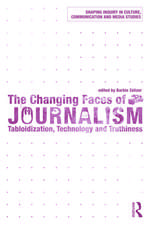Government Communication: Cases and Challenges
Editat de Prof. Karen Sanders, Prof. Maria Jose Canelen Limba Engleză Paperback – 5 iun 2013
| Toate formatele și edițiile | Preț | Express |
|---|---|---|
| Paperback (1) | 233.91 lei 6-8 săpt. | |
| Bloomsbury Publishing – 5 iun 2013 | 233.91 lei 6-8 săpt. | |
| Hardback (1) | 717.37 lei 6-8 săpt. | |
| Bloomsbury Publishing – 5 iun 2013 | 717.37 lei 6-8 săpt. |
Preț: 233.91 lei
Preț vechi: 266.68 lei
-12% Nou
Puncte Express: 351
Preț estimativ în valută:
44.76€ • 48.61$ • 37.60£
44.76€ • 48.61$ • 37.60£
Carte tipărită la comandă
Livrare economică 23 aprilie-07 mai
Preluare comenzi: 021 569.72.76
Specificații
ISBN-13: 9781849665087
ISBN-10: 1849665087
Pagini: 336
Dimensiuni: 156 x 234 x 23 mm
Greutate: 0.5 kg
Editura: Bloomsbury Publishing
Colecția Bloomsbury Academic
Locul publicării:London, United Kingdom
ISBN-10: 1849665087
Pagini: 336
Dimensiuni: 156 x 234 x 23 mm
Greutate: 0.5 kg
Editura: Bloomsbury Publishing
Colecția Bloomsbury Academic
Locul publicării:London, United Kingdom
Caracteristici
Explores ideas of government and communication in continental Europe, Anglo-American convention and other emerging democracies
Notă biografică
Karen Sanders is Professor in the Faculty of Communication and Humanities, San Pablo CEU University, Madrid, Spain. She is also visiting lecturer at the University of Navarra, Spain, and teaches on their MA in Political and Corporate Communication run jointly with George Washington University, USA. María José Canel is Professor in Political Communication and Public Relations at the University Complutense of Madrid, Spain, Vice President of the Section in Political Communication of the International Association for Mass Communication Research (IAMCR) and President of ACOP Asociación de Comunicación Política. She has published nationally and internationally on government communication and related matters.
Cuprins
Introduction: Mapping the Field of Government CommunicationSection One: Continental European Approaches: from Advertising to Marketing: 30 Years of French Government CommunicationMeeting the Challenges? Government Communication in GermanyLooking for News Space or Thinking Strategically? The Case of Spanish Government CommunicationGovernment Communication in Sweden: From Public Reliance to Public RelationsPoland: Government Communication in Democratic Poland 20 Years After the Collapse of CommunismSection Two: Anglo American Traditions: Australia and Government CommunicationUnderstanding the Strengths and Limitations of Strategic Communication: The Case of British Government CommunicationUnited StatesSection Three: The Achievements and Challenges for Emerging Democracies: Government Communication in Southern AfricaGovernment Strategic Communication in the Chilean Political TransitionContributing to Consensus, Stability and Economic Growth: Political Communications of the Chinese Government in 2008 Conclusion: A Comparative Perspective in Government Communication?
Recenzii
This tour of how different governments communicate to press and publics is led by top scholars in the field. The authors have created a valuable sourcebook on an important and changing topic.
It has been about time that somebody maps the field of government communication, a field with ever increasing scientific and political importance. This book does the job and it does it theoretically as well as with a plethora of empirical data from no less than 15 countries around the world. For years to come this book will be the first stop for scholars and practitioners seeking information on what is out there and how it can be normatively assessed on blurring lines between information and advertising or spin and substance.
This is a much needed and deeply thoughtful book about Government Communication. The authors have brought together a carefully selected group of comparative case studies from around the world using the Freedom House Index as the basis for choice and analysis. The result is a rich picture of the purpose, structure and process of Government Communication in different settings, or to use Canel and Sanders words, 'what it is' and 'what it does'. This seminal text plugs a gap in our knowledge and understanding in a growing area of study and as such is essential reading for both academics and practitioners.
As somebody who is sometimes described as a 'spin doctor,' it is a pleasure to read a book on government communication that depicts leaders and citizenry in a relationship, rather than simply manipulation from the top. Using rich case studies in fifteen countries, Karen Sanders and María José Canel analyze the different ways governments cope with growing uncertainty in the world of politics and media and the importance of strategy and perspective over tactics and rapid response.
It has been about time that somebody maps the field of government communication, a field with ever increasing scientific and political importance. This book does the job and it does it theoretically as well as with a plethora of empirical data from no less than 15 countries around the world. For years to come this book will be the first stop for scholars and practitioners seeking information on what is out there and how it can be normatively assessed on blurring lines between information and advertising or spin and substance.
This is a much needed and deeply thoughtful book about Government Communication. The authors have brought together a carefully selected group of comparative case studies from around the world using the Freedom House Index as the basis for choice and analysis. The result is a rich picture of the purpose, structure and process of Government Communication in different settings, or to use Canel and Sanders words, 'what it is' and 'what it does'. This seminal text plugs a gap in our knowledge and understanding in a growing area of study and as such is essential reading for both academics and practitioners.
As somebody who is sometimes described as a 'spin doctor,' it is a pleasure to read a book on government communication that depicts leaders and citizenry in a relationship, rather than simply manipulation from the top. Using rich case studies in fifteen countries, Karen Sanders and María José Canel analyze the different ways governments cope with growing uncertainty in the world of politics and media and the importance of strategy and perspective over tactics and rapid response.
Descriere
The importance of political communication to the study of media and politics is generally accepted. Why has government communication been neglected? This book provides the first account of the government communication worldwide and an exploration of the prevailing themes.
















